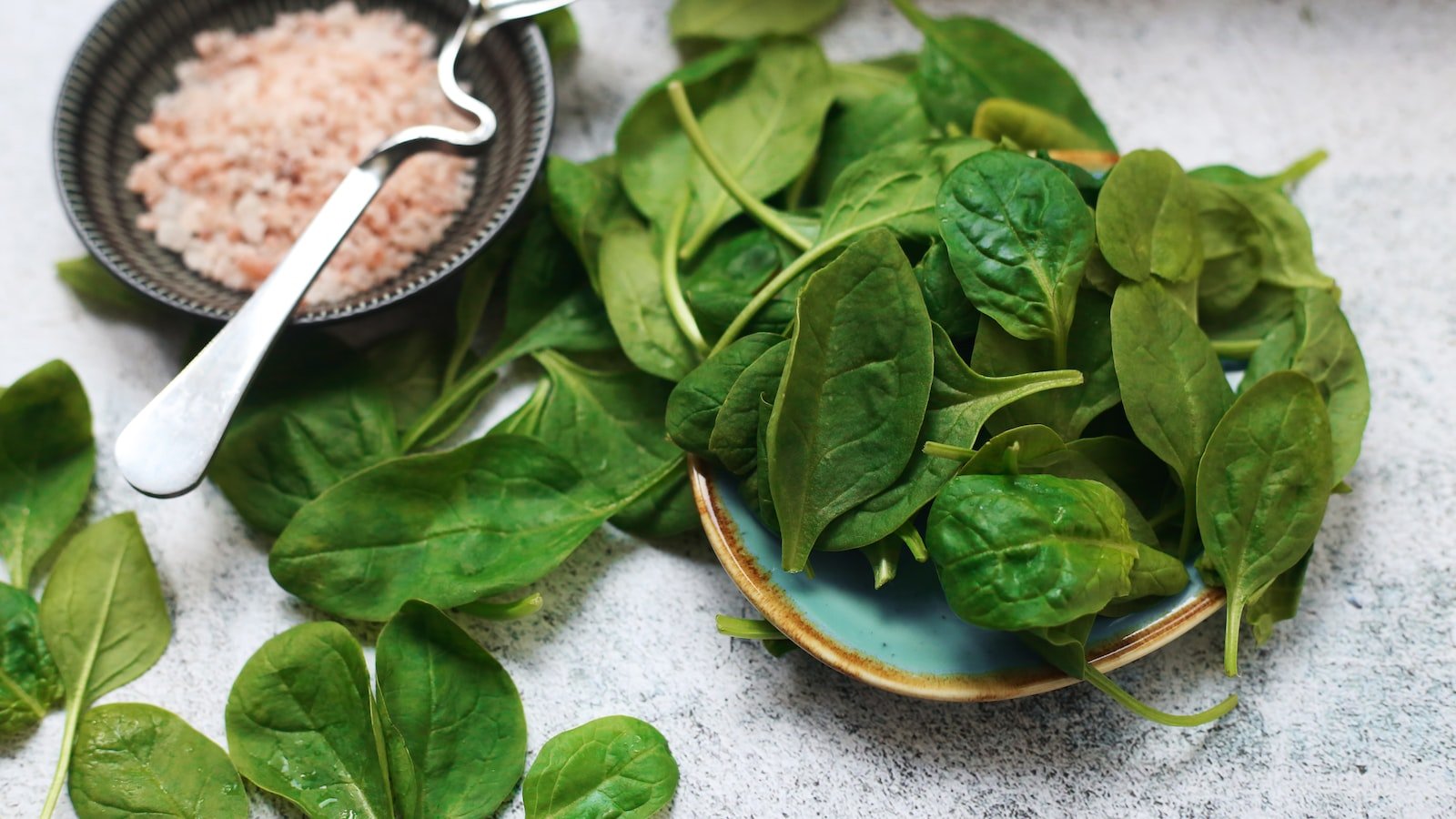Table of Contents
ToggleBenefits of Spinach
Index
Nutritional Value and Calories of Spinach
What are the Benefits of Spinach?
Benefits of Spinach Juice
Benefits of Eating Raw Spinach
How Should Spinach Be Consumed?
Who Should Be Careful While Consuming Spinach?
The Benefits of Spinach Don’t Require Excess Consumption
An important element of the dark green leafy vegetables group, spinach stands out with its health benefits and can be consumed in various ways. The harvest of spinach begins in the winter and remains on the grocery shelves until the end of the spring. For this reason, it can be consumed fresh during this period, but it can also be found and used as frozen food at any time of the year. Since its vitamin and mineral content is very rich, it is recommended to include spinach regularly in the nutrition plan for healthy individuals. In addition, thanks to the herbal components and antioxidant elements it contains, it contributes to fighting diseases, strengthening immunity and improving health in general. So who should consume spinach and who should avoid consuming this food too much? Here is all you need to know about the benefits and health effects of spinach…
Nutritional Value and Calories of Spinach
Spinach is a natural food type that is even the subject of cartoons due to its high nutritional properties. Since it is produced abundantly in our country, it is among the accessible vegetable alternatives especially in winter months. Moreover, like other types of green vegetables, the calorie content of spinach is quite low. For this reason, individuals trying to control weight can easily consume spinach. In 100 grams of boiled spinach;
19 kcal energy,
0.48 g carbohydrates,
2.81 g of protein,
0.34 g fat,
61 mg sodium,
383 mg of potassium,
148 mg of calcium,
3.81 mg of iron,
29mg of vitamin C,
It contains 871 IU of vitamin A.
As can be understood from this information, spinach is a very good source of protein, rich in vitamins and minerals. While plant foods are generally limited in terms of iron mineral, spinach can be considered as an important source of iron. In this context, it can be a valuable nutritional alternative for individuals who eat vegetarian and vegan diets.

What are the Benefits of Spinach?
Since spinach is rich in macro and micronutrient content, it has many health benefits. One of the simplest of these is that it makes an important contribution to meeting the body’s daily vitamin and mineral needs. It can help you meet your needs, especially since it contains calcium, potassium and iron minerals and vitamins A and C in significant amounts. Apart from this, the following can be given in response to the question of what are the benefits of spinach:
Thanks to its content of alpha-lipoic acid, which has antioxidant properties, it can help balance blood sugar levels. It may support the reduction of insulin resistance in type 2 diabetes patients by increasing insulin sensitivity.
Thanks to the herbal components with antioxidant properties such as lutein, zeaxanthin and quercetin it contains, it contributes to neutralize the free radicals circulating in the body by binding. Thus, by reducing oxidative stress, it can reduce the risk of cancerous cells and the frequency of infections and chronic diseases.
Since it contains vitamin A precursors, it protects eye health and can reduce the possibility of eye diseases such as cataracts and night blindness.
Thanks to its content of vitamins C and E and beta-carotene, which is the precursor of vitamin A, it helps to protect lung health. While it supports the fight against respiratory system diseases such as asthma, it can also contribute to alleviating the problems caused by these diseases.
Because it has a significant potassium content, spinach has a blood pressure lowering effect. In this way, while helping to balance blood pressure in hypertension patients, it can support protection from cardiovascular diseases related to high blood pressure.
Vitamin A, which is high in the content of spinach, contributes to the improvement of hair, nail and skin health. In addition to vitamin A, which plays an active role in the healthy growth of these tissues, vitamin C is also responsible for the production of collagen, which gives hair and skin its natural structure. On the other hand, iron deficiency leads to deterioration of skin, hair and nail health. Containing all these vitamins and minerals together, spinach helps to prevent dermatological diseases and supports hair and nail growth.
Some studies have shown that as a result of vitamin K deficiency, the use of calcium mineral in the body is negatively affected and the risk of bone fracture may increase. Consumption of spinach can help protect your bone and joint health, as it helps to meet the requirement of vitamin K and contains the mineral calcium.
Due to its high fiber content, spinach benefits include regulation of the digestive system. For this reason, regular consumption of spinach will contribute to the prevention of constipation.
Benefits of Spinach Juice
Contrary to the usual, spinach is a vegetable that can be consumed raw as well as cooked. Raw spinach benefits include all of cooked spinach, or even more. This is because some of the beneficial components in spinach are lost at various rates when exposed to heat. At the beginning of this loss comes vitamin C. Long-term heat treatments also lead to the conversion of nitrite in spinach into nitrate. Nitrate is a harmful compound for the body, and the more spinach is cooked, the more its amount will increase.

Benefits of Eating Raw Spinach
These nitrates in the spinach dish, which is cooked longer than necessary or reheated repeatedly after cooking, can reach levels that will harm the body. The benefits of spinach juice will be the same as cooked spinach, and even more so because of heat losses. In order to prevent loss of nutritional value, you can choose to consume spinach raw. You can consume raw spinach by squeezing its juice, or you can add it to your various recipes by putting it in hot water momentarily. You can even prepare green-colored vegetable juices as a detox drink by using various green vegetables together.
How Should Spinach Be Consumed?
In order to consume spinach in its healthiest form with the highest nutritional value, it is recommended to use it fresh in season. Apart from the freshness, another point to be considered is the cleanliness of the spinach. Due to its growing conditions and season, spinach generally contains soil and mud. For this, the leaves of the spinach should be separated from each other and washed in water, and after being cleared from the soil, they should be kept in vinegar water for a while. If this cleaning process is not done well, it can cause soil and soil-borne bacteria, as well as agricultural residues to remain in spinach, which can threaten health. In order not to lose the nutritional elements in its content, the spinach should not be chopped too much, it should not be cooked for too long, and methods such as roasting in oil for too long that can cause the spinach to burn should be used. Therefore, the risk of conversion of nitrite to nitrate should also be considered, and care should be taken to be moderate during cooking and heating of spinach. Another important benefit of spinach to the body is that it is a very good source of iron mineral. However, since calcium and iron minerals compete with each other during absorption from the intestines, calcium source foods should not be consumed at the same time as iron sources. For this reason, people who have anemia (anemia) problems should not consume calcium source dairy products such as yoghurt, buttermilk and tzatziki in addition to spinach. However, since it is important to meet the calcium requirement, they can be consumed in other meals that do not include spinach.
Who Should Be Careful While Consuming Spinach?
Regular consumption of spinach can be recommended for healthy individuals who do not have any acute or chronic diseases and do not use continuous medication, since the benefits of spinach will not end with counting. In addition, some diseases or some medications may require caution when consuming spinach. Some of these situations can be summarized as follows:
The molecule called purine in spinach turns into uric acid as a result of digestion. Since uric acid is excreted through the kidneys through the urine, intensive spinach consumption for kidney patients can create a burden on the kidney. In addition, since the potassium and sodium contents are high, spinach should be consumed carefully and in moderation by the kidney patients in line with the physician’s recommendations.
Since it contains a high amount of fiber, spinach consumption may be inconvenient for people such as ulcerative colitis patients and crohn’s patients in the attack period, who need to be fed fiber-free.
Like other dark green leafy vegetables, spinach contains significant amounts of vitamin K. Vitamin K, which plays a role in blood coagulation, should be taken in moderation in patients using blood thinners and in patients at risk of intravascular coagulation. For this reason, spinach consumption may be inconvenient for these people.
In people with certain types of kidney stones, it may require restriction of foods that increase the excretion of substances in the composition of these stones from the kidneys. People with calcium oxalate stones and uric acid stones may therefore need to reduce their spinach consumption.
The Benefits of Spinach Don’t Require Excess Consumption
Although such situations require being careful in the consumption of spinach, it is useful to act in accordance with the recommendations of your doctor. If your situation is not an obstacle for spinach consumption, you can continue to eat spinach for your health and taste. If you do not have any health problems, you can regularly include spinach in your nutrition plan, which is abundant on the counters from winter to spring, and you can take advantage of the benefits of spinach mentioned above.
